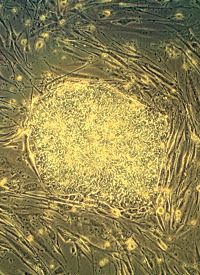
James Sherley, an ex-MIT professor, was denied tenure and further employment at MIT about two years ago. Sherley claims the firing was based on racism — Sherley is black. But others believe it may be because of his anti-embryonic and pro-adult stem-cell studies and conclusions.
The purpose of the center is to partner with other biotech companies to develop proprietary adult stem-cell products in order to mass produce mature cells to meet specific needs.
Sherley contends that embryonic stem cells cause tumors and cancers when injected into human tissue, and therefore shouldn’t be used to treat patients who are already suffering from various diseases. He stated, “tumor formation property is an inherent feature of the [embryonic] cells.”
In testimony before a Senate committee in Australia then-Associate Professor of Biological Engineering Sherley warned that the legislators needed to be aware of “a basic biological principle that makes false the commonly pronounced claim that research with cloned human embryos has the potential to lead to new therapies for diseases in children and adults.”
He further explained that when it comes to embryonic stem cells, any “success, any proposed approach to disease therapies for tissues in children and adults must be able to sustain the essential renewal process of adult tissues. Only adult stem cells can accomplish this feat. Embryonic stem cells cannot, because they lack the property of asymmetric self-renewal.”
These conclusions were backed up by leading Australian stem-cell researcher Professor Alan Mackay-Sim. Mackay-Sim, who believes the drive to cure diseases and alleviate suffering to be a noble cause, also noted that it is in the area of adult stem cells, not embryonic stem cells, with the definite exclusion of cloned embryonic stem cells, where successful research has been done.
University of Melbourne Emeritus Professor of Medicine Thomas Martin also agreed with Sherley and Mackay-Sim’s conclusions, saying he did not think embryonic stem-cell research would ever lead to cures for any major diseases.
The new adult stem-cell technology center is located in Watertown, Massachusetts, under the Boston Biomedical Research Institute (BBRI), which is a 40-year-old independent research group. BBRI is offering 2,000 square feet of space for the project.
Sherley is dedicating funds from his own National Institutes of Health Director’s Pioneer Award research dollars to the new endeavor, as well as looking for sponsors interested in an ideal and not motivated solely by profits. By producing a reliable and stable source of adult stem cells — pancreas, skeletal muscle, liver, kidney, and skin cells — for other biotech companies, he predicts the venture could be self-sustaining in six years.


